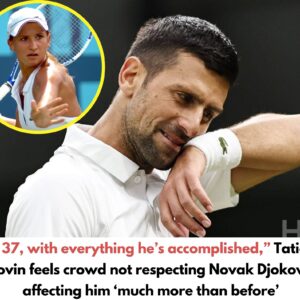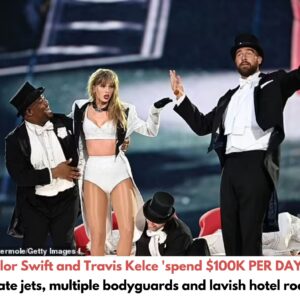
Though falling behind competitors like Adidas, Puma is on track to flourish fronted by pop culture favorites and a top tier China strategy.
Earlier this week, Blackpink band member Rosé was named Puma’s newest global brand ambassador. The hashtag #PUMAxROSÉ# already has 2.29 million reads on Weibo, with the announcement racking up over a million likes on Instagram.
But Rosé is not the only one of the best-selling global music artists of all time representing the German sportswear company. Whether it is Dua Lipa starring in the Palermo sneaker campaign, or Rihanna and A$ap Rocky celebrating the rapper’s Puma collection ready for the F1 Miami Grand Prix, the sports brand has a rising knack for landing stars at the center of popular culture.
In fact, that F1 partnership was announced earlier in 2023, before A$ap Rocky was named the official Creative Director in October. Realizing the potential that the F1 has in terms of fan powered merchandise, sports category elevation, and celebrity culture, Puma is moving beyond its peers in representation of the world-renowned sporting event.
Though undeniably a leading sports brand, Puma has yet to perform to the strength of its peers.
The brand reported that Q1 results were in line with its expectations, with a marginal growth in sales of 0.5% and $93.9M in net profit. Competitor Nike, however, saw first quarter revenues at $12.9 billion, up 2 percent compared to prior year on a reported and currency-neutral basis. While, Adidas exceeded expectations with an eight percent year-over-year (YoY) increase in sales, achieving revenues of €5.46 billion (US$5.83 billion) for the fiscal first quarter of 2024.

The latest A$ap Rocky x Puma collaboration was recently released. Image: Puma
Despite this, Puma’s cultural relevance has sped up in recent years, projecting a promising future in China, and on a global scale.
China focus
The German multinational corporation has reported a 19 percent growth in China for the fiscal year 2023, marking four consecutive quarters of expansion despite the competitive and volatile sports market. This growth highlights the strategic pivot further toward the market.
The Chinese sports industry, valued at 3.3 trillion yuan ($456.2 billion) in 2022, is projected to reach 5 trillion yuan by 2025, according to a report by the General Administration of Sport of China and the National Bureau of Statistics. This rapid growth illustrates the sector’s substantial impact on the national economy.
Luxury brands can learn from Puma’s localized approach to the Chinese market. The brand has increasingly released local collaborations, such as two with Pop Mart and Liberaiders, respectively, earlier this month.

One of Puma’s latest collaborators, Liberaiders represents Beijing’s rock culture. Photo: Puma
Establishing more presence in the market, Puma also announced a partnership with leading Chinese multinational technology conglomerate Tencent in January this year in order to amp up its brand digitisation. The company is evidently following in the footsteps of Adidas, which has been partnering with domestic talents, brands, and organizations for a while in mainland China, from Melting Sadness to Rui Zhou.
On a global scale, the brand has become synonymous with cult brands such as Coperni, with the 90SQR collection launched in January 2024, and Berlin’s pride, Ottolinger. Naturally, connecting with names that are backed by significant subcultures and communities has enhanced its positioning as a more fashion-forward name. At the same moment, the likes of Adidas and Nike have opted to be associated with larger scale designers like Wales Bonner and Martine Rose.
Discovering niche fan bases such as 2024 it-girl brands like Ottolinger and Coperni, and ensuring localization with Chinese brands at the same time, makes Puma’s partnership business model strategically intimate. Then, all at once, it is still splashing out on lucrative partners like Rihanna, A$ap Rocky, and now, Blackpink’s Rosé.
Having a hand on niche communities and star power is a frame that proves to have a handle on the sports and fashion set. Whether or not the brand will thrive to the level of Nike or Adidas is yet to be determined, but it is looking probable according to its 2024 movements.
News
Justin Timberlake’s *NSYNC bandmate Chris Kirkpatrick teases reunion saying ‘it feels right’ when the five are together (HF)
Justin Timberlake’s *NSYNC bandmate Chris Kirkpatrick teases reunion saying ‘it feels right’ when the five are together Founding member of legendary boy band details future hopes CHRIS Kirkpatrick feels it every time *NSYNC is in the same room together –…
Jessica Biel stands firmly by Justin Timberlake in the “eye of the storm” when her husband drives drunk
Jessica Biel did not flinch in the face of turbulence, she remained determined to stand by Justin Timberlake through difficult times. After Justin Timberlake was arrested for drunk driving, his marriage with Jessica Biel once again became the focus of…
“At 37, with everything he’s accomplished,” Tatiana Golovin feels crowd not respecting Novak Djokovic is affecting him ‘much more than before’
Golovin feels Djokovic, with everything he has achieved, has a right to complain if he is not getting the love and respect he deserves. Novak Djokovic (Image via Imago) Novak Djokovic was angry at the Wimbledon crowd for their constant ‘boos’…
Jessica Biel throws herself into character as she films The Better Sister with Elizabeth Banks in NYC – weeks after husband Justin Timberlake’s DWI arrest
Jessica Biel threw herself into character as she continued filming the Amazon Prime Video series The Better Sister in New York City on Thursday. The actress, 42 – whose husband Justin Timberlake was recently arrested for DWI – was spotted on the set with co-star Elizabeth…
Travis Kelce dedicates karaoke win to Taylor Swift as fans go wild for his cringeworthy performance of iconic rock song (HF)
Travis Kelce produced a performance Taylor Swift would have been proud of to prevail in a Lake Tahoe karaoke competition on Thursday night. And after being crowned the winner, Kelce made sure to dedicate the victory to his pop-megastar girlfriend. Both Travis and…
Taylor Swift and Travis Kelce ‘spend $100K PER DAY on private jets, multiple bodyguards and lavish hotel rooms’ (HF)
Taylor Swift and Travis Kelce don’t even think about the big bucks anymore, as they prove that love has no price despite reportedly spending $100,000 a day together at times. According to Life & Style, the superstar couple isn’t afraid to treat each other…
End of content
No more pages to load











